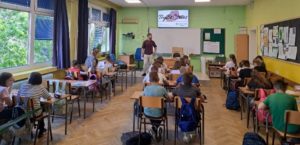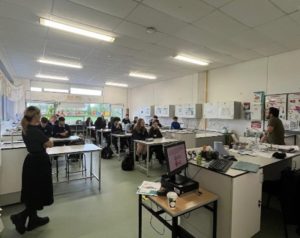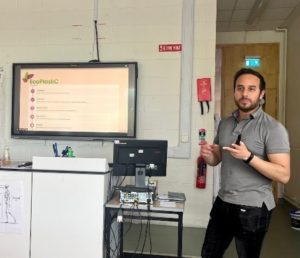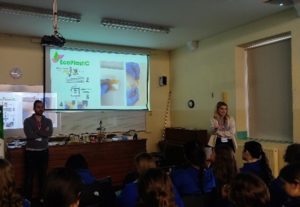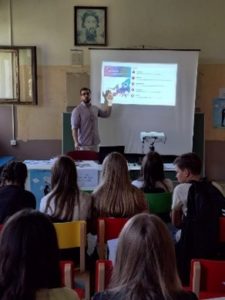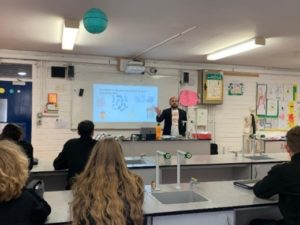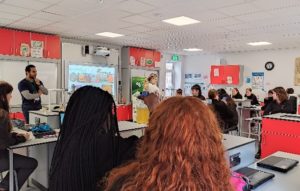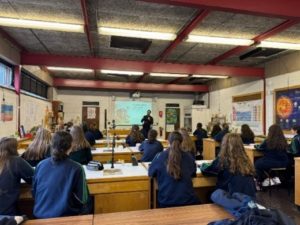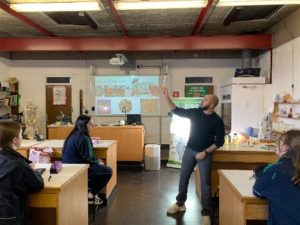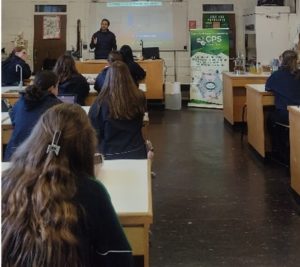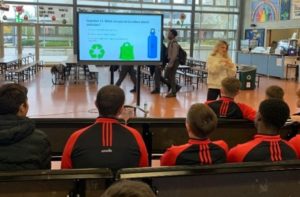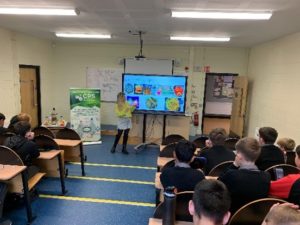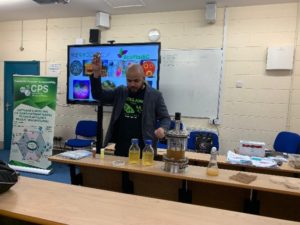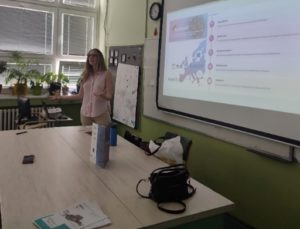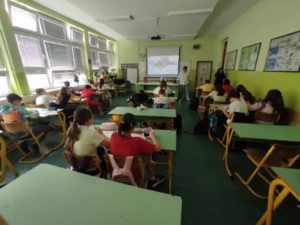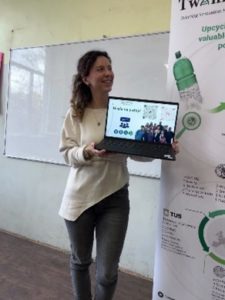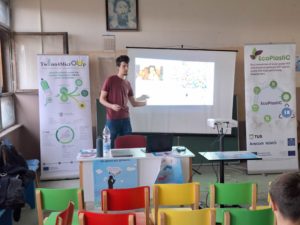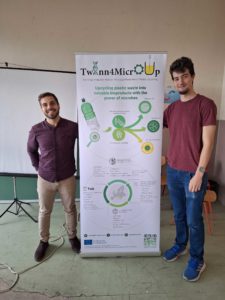School visits / October – December 2024, Ireland & Serbia
Tackling Plastic Pollution Through Education: The ToyStories Project
The ToyStories project, funded by the Irish Research Council, was an innovative initiative that raised awareness about plastic pollution and its impact on the environment by engaging over 400 children across Ireland and over 150 across Serbia in 2024.
The project targeted young people aged 12-16 and used interactive workshops and creative activities to educate participants about the dangers of plastic waste and the importance of sustainability. Students learned about the life cycle of plastics, the environmental consequences of mismanagement, and actionable solutions, fostering a deeper understanding of circularity and eco-friendly practices.
The initial knowledge and awareness assessment was performed using ToyStories questionnaires, which were based on the Environmental Protection Agency (EPA) reports and relevant social-economic studies, and were adapted to the selected target group. The interactive workshops were held by experts in this area to achieve better understanding of the presented topic, and their main goal was to motivate young people to discuss this issue and come up with their own solutions. The workshops included presentations on circularity of plastics through successful examples, where the EcoPlastiC and Twinn4MicroUp projects were presented, explained and discussed. This project was carried out in 12 schools in Ireland and in Serbia, and a comparative study and detailed statistical analysis is currently in progress.
In Ireland, this initiative was carried out in eight schools across multiple counties: Westmeath (1), Roscommon (1), Cork (2), Longford (1), Dublin (2), and Laois (1). The workshops were led by project PI Dr. Marija Nicevic, along with associates Dr. Eduardo Lanzagorta Garcia and Henrique Pereira. Nearly every school had more than one group of students eager to participate in the project, and every professor expressed interest in continuing the collaboration beyond its initial scope. Second round of workshops was also part of the Science week in three out of 8 schools. The second round of workshops was also incorporated into Science Week in three of the eight participating schools, increasing the project’s reach and reinforcing its impact by engaging even more students in discussions on plastic pollution and sustainability.
In Serbia, the research expanded to four schools in Novi Sad, Kragujevac, Požarevac, and Vranje, further broadening the project’s impact. The workshops were conducted by researchers from the Eco-Biotechnology and Drug Development group at the Institute of Molecular Genetics and Genetic Engineering, University of Belgrade. The team, consisting of Dr. Jelena Simić, Dr. Sandra Vojnović, Dr. Ivana Aleksić, Vukašin Janković, and Nikola Radivojević, played a key role in delivering interactive sessions that educated students on plastic pollution, sustainability, and innovative solutions to environmental challenges.
